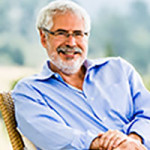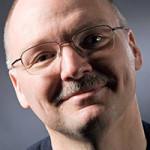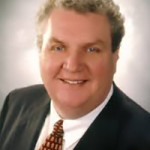Charles Leadbeater is a leading authority on innovation and creativity. He has advised companies, cities and governments around the world on innovation strategy and drew on that experience in writing his latest book We-think: the power of mass creativity, which charts the rise of mass, participative approaches to innovation from science and open source software, to computer games and political campaigning.
We-think was the latest in a string of acclaimed books: Living on Thin Air, a guide to living and working in the new economy; Up the Down Escalator, an attack on the culture of public pessimism accompanying globalization and In Search of Work, published in the 1980’s, which was one of the first books to predict the rise of more flexible and networked forms of employment.
In 2005 Charles was ranked by Accenture, the management consultancy, as one of the top management thinkers in the world. A past winner of the prestigious David Watt prize for journalism, Charles was profiled by the New York Times in 2004 for generating one of the best ideas of the year, the rise of the activist amateur, outlined in his report The Pro-Am Revolution.
As well as advising a wide range of organizations on innovation including the BBC, Vodafone, Microsoft, Ericsson, Channel Four Television and the Royal Shakespeare Company, Charles has been an ideas generator in his own right. As an associate editor of the Independent he helped Helen Fielding devise Bridget Jones’s diary. He wrote the first British report on the rise of social entrepreneurship, which has since become a global movement. His report on the potential for the web to generate social change led to the creation of the Social Innovation Camp movement.
Charles has worked extensively as a senior adviser to the governments, advising the 10 Downing St policy unit, the Department for Trade and Industry and the European Commission on the rise of the knowledge driven economy and the Internet, as well as the government of Shanghai. He is an advisor to the Department for Education’s Innovation Unit on future strategies for more networked and personalized approaches to learning and education. He is a co-founder of the public service design agency Participle.
A visiting senior fellow at the British National Endowment for Science Technology and the Arts, he is also a longstanding senior research associate with the influential London think-tank Demos and a visiting fellow at Oxford University’s Said Business School and the Young Foundation. He is co-founder of Participle, the public service innovation agency, which is working with central and local government to devise new approaches to intractable social challenges.
Charles spent ten years working for the Financial Times where he was Labour Editor, Industrial Editor and Tokyo Bureau Chief before becoming the paper’s Features Editor. In 1994 he moved to the Independent as assistant editor in charge of features and became an independent author and advisor in 1996.
On the show, Leadbeater discussed his theory of lean innovation and how it not only applies to small, cash-strapped enterprises (though it certainly does), but also to the very biggest corporations. For example, General Electric practiced lean innovation when it sought to provide a low-cost heart monitor for use in India. Lean innovation isn’t simply about removing features from products so that lower-cost versions of them may be released, it is a fundamental rethinking of the product in order to conceive of a design that is lower cost by its very nature. One thought experiment Leadbeater spoke about was the consideration of building Chinese restaurants versus building McDonald’s restaurants. A McDonald’s is essentially a kit sold to a franchise owner, such that it is very much the same everywhere, but requires a lot of capital for a franchise owner to open. In contrast, a lean innovator pursues a Chinese restaurant approach – Chinese restaurants look more or less the same everywhere, and offer similar products, but they aren’t sold as kits, don’t require as much capital to open as a result, and are tailored to their specific environments in such a way as to appeal more strongly to locals.




















